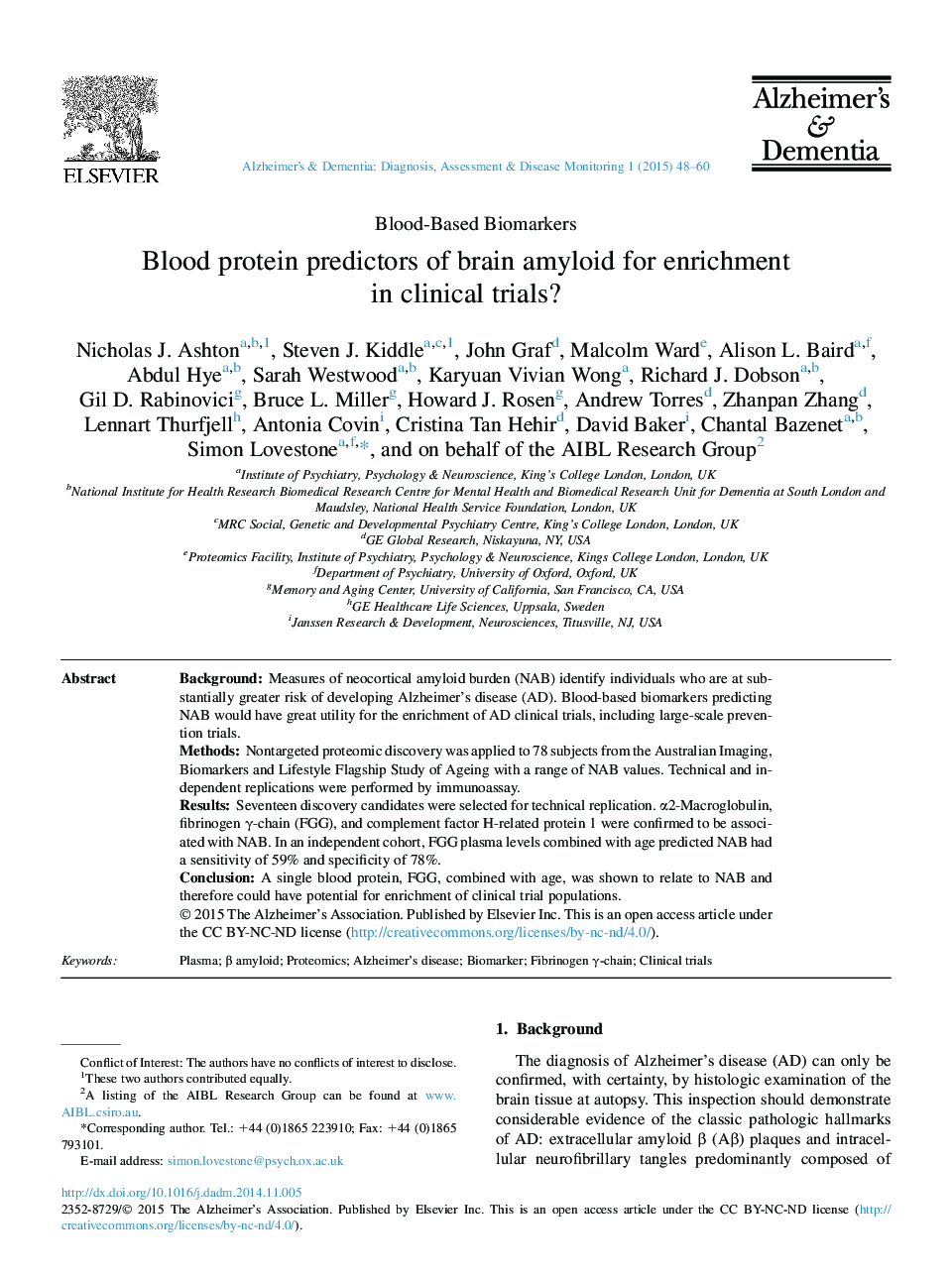| Article ID | Journal | Published Year | Pages | File Type |
|---|---|---|---|---|
| 3032049 | Alzheimer's & Dementia: Diagnosis, Assessment & Disease Monitoring | 2015 | 13 Pages |
BackgroundMeasures of neocortical amyloid burden (NAB) identify individuals who are at substantially greater risk of developing Alzheimer's disease (AD). Blood-based biomarkers predicting NAB would have great utility for the enrichment of AD clinical trials, including large-scale prevention trials.MethodsNontargeted proteomic discovery was applied to 78 subjects from the Australian Imaging, Biomarkers and Lifestyle Flagship Study of Ageing with a range of NAB values. Technical and independent replications were performed by immunoassay.ResultsSeventeen discovery candidates were selected for technical replication. α2-Macroglobulin, fibrinogen γ-chain (FGG), and complement factor H-related protein 1 were confirmed to be associated with NAB. In an independent cohort, FGG plasma levels combined with age predicted NAB had a sensitivity of 59% and specificity of 78%.ConclusionA single blood protein, FGG, combined with age, was shown to relate to NAB and therefore could have potential for enrichment of clinical trial populations.
